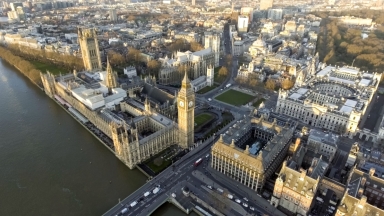
Christian organisations could be caught out under the government's new extremism definition, a charity has warned.
Christian policy group CARE said that the new definition was "over-broad" and would put at risk groups that make "countercultural statements" on issues "blacklisted by officials who have a political agenda".
The definition is aimed at extremist and Far-Right groups but critics have warned of a 'chilling effect' on free speech.
The government calls extremism "the promotion or advancement of an ideology based on violence, hatred or intolerance, that aims to: negate or destroy the fundamental rights and freedoms of others; or undermine, overturn or replace the UK's system of liberal parliamentary democracy and democratic rights".
Ross Hendry, CEO of CARE, said that while it was right to address extremism, the new definition risks undermining civil liberties.
"Extremism is a real threat to our society. The values of militant Islamists and far right groups are completely contrary to our democratic system and the Christian worldview. It is absolutely right that the spreading of lies, and racial and religious hatred is confronted," he said.
"At the same time, the government's new extremism definition must be closely scrutinised. Policies of this kind are notoriously fraught. There is always a danger that in trying to catch genuinely harmful behaviour, wider civil liberties are disproportionately undermined."
Hendry warned that terms like 'hatred' and 'intolerance' could be interpreted "very widely" and potentially catch out mainstream Christian groups over their views on issues like abortion, sexuality and transgender ideology.
"Whilst the new definition will not have statutory force, the government will punish groups and publish a blacklist for all to see. There is a risk that campaigning individuals within government could unfairly seek to have certain groups proscribed for holding 'the wrong beliefs'," he said.
"The government's intentions are good, but its approach is problematic. There are good mechanisms in place to deal with dangerous groups and individuals. The police need to apply existing laws effectively, and consistently. We'd urge the government to focus on this key issue."













